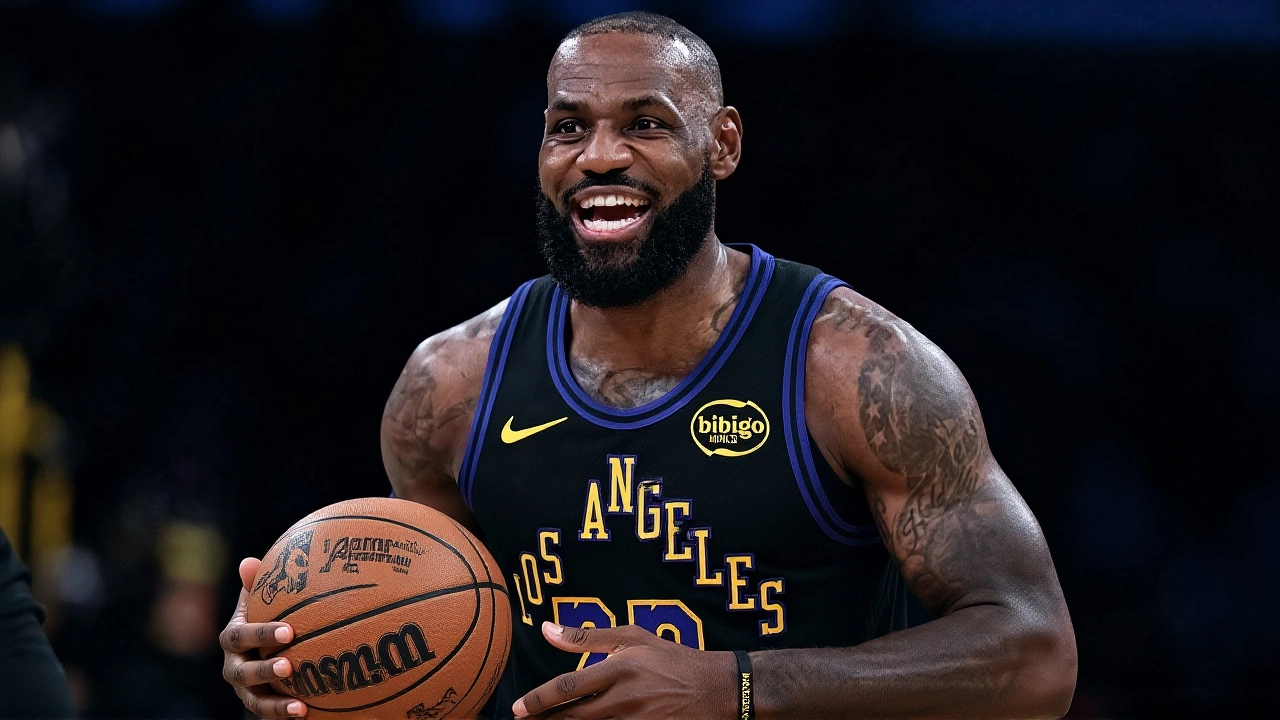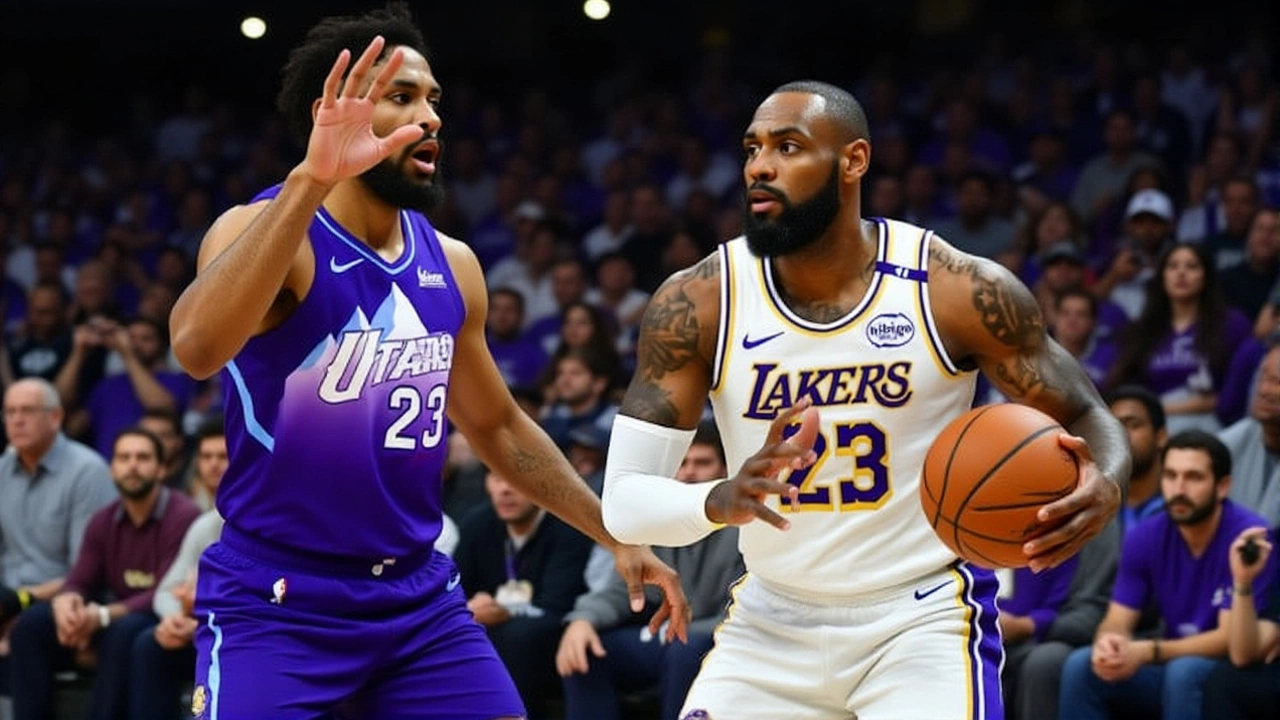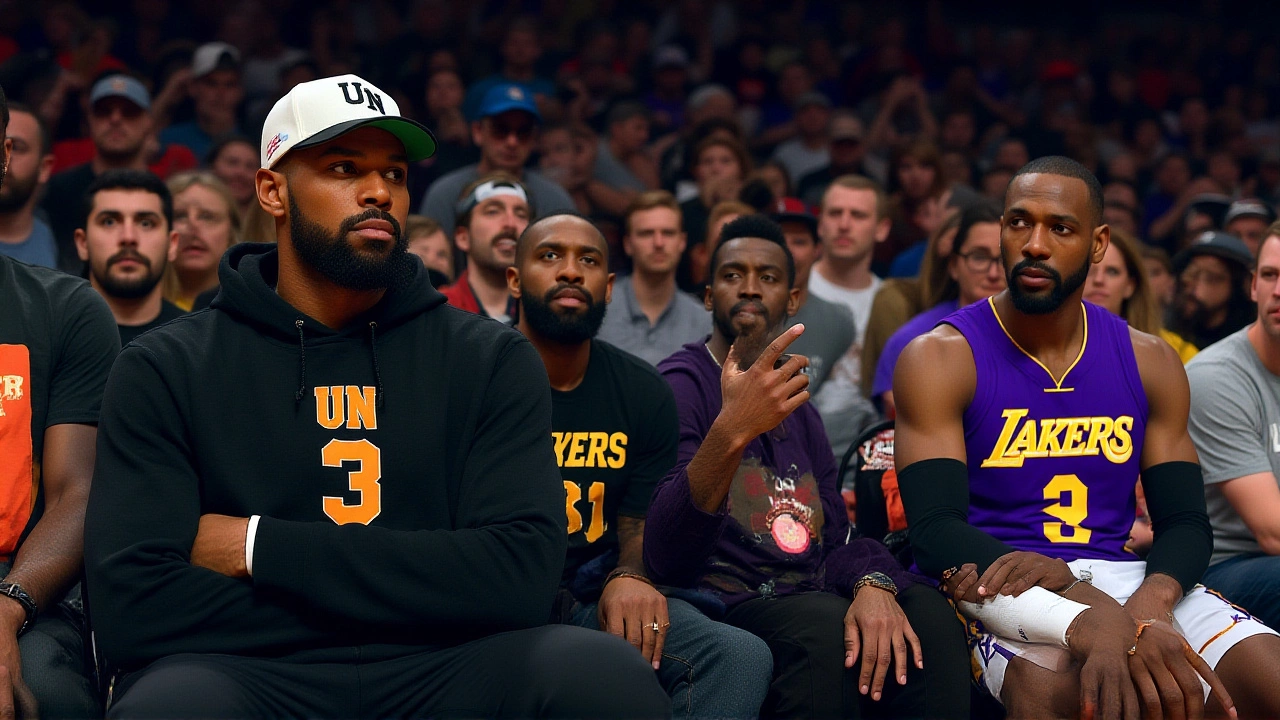When Los Angeles Lakers tipped off against Utah Jazz on November 18, 2025, at Crypto.com Arena, the basketball world watched not just for the score—but for the story behind it. Without LeBron James still sidelined, the Lakers had somehow climbed to a 11-4 record, defying expectations and turning Luka Doncic into the de facto engine of one of the NBA’s most surprising offenses. Meanwhile, the Jazz, at 5-9, were riding a wave of chaotic energy: explosive shooting, porous defense, and a baffling ability to cover massive spreads on the road. This wasn’t just another game. It was a clash of identities—and betting lines that couldn’t agree on who was really in control.
Contrasting Paths, Same Court
The Lakers, despite missing their franchise cornerstone, had become a machine of efficiency. Luka Doncic, now fully integrated into the system, was averaging 31.4 points, 9.1 rebounds, and 8.7 assists over his last eight games. Austin Reaves, quietly one of the league’s most underrated two-way guards, was hitting 42% from three and locking down opposing wings. The Lakers averaged 112.2 points at home—124 in their last five—and their half-court execution had tightened under coach Darvin Ham. They weren’t flashy, but they were relentless in the paint, outscoring opponents by 8.3 points in the fourth quarter this season.
The Jazz, by contrast, were a paradox. Lauri Markkanen was putting up 27.8 points per game, shooting 41% from deep, and carrying a team that had no reliable second scorer. Their defense? Third-worst in the league, allowing 125 points per game on average. Yet somehow, they’d covered the spread in 26 of their last 27 road games against the Lakers. That’s not luck. That’s pattern. And it’s driving oddsmakers crazy.
Betting Lines That Don’t Add Up
The spreads told a story of confusion. FOX Sports had the Lakers as 13.5-point favorites. CBS Sports and SportsKeeda had them at 12.5. OddsCrowd, tracking real-time money flow, listed them at just -10.5. Why the gap? Because the public was betting the Jazz like they were underdogs in a playoff series—not a regular-season road game.
Here’s the twist: 63% of the money and 61% of the bets were on the Lakers, yet the line barely budged. That’s a sign of sharp money backing the Jazz. The over/under was even wilder: FOX Sports set it at 239.5, CBS at 238.5, OddsCrowd at 232.5, and SportsKeeda’s analysts were openly recommending over 233.5. The Jazz had gone over the total in 85.7% of their home games—but here’s the catch: they were playing in Los Angeles.
And that’s where the data gets eerie. According to Scores24, in the last seven head-to-head matchups in LA, the Jazz had scored fewer than 27.5 points in the first quarter every single time. They started slow. But they didn’t stay that way. Their second-half scoring averaged 53.45 points—compared to the Lakers’ 60.24. So while the Lakers were better at closing, the Jazz were better at catching up.
Why This Game Matters Beyond the Box Score
This wasn’t just about who won. It was about identity. The Lakers, without LeBron, were proving they could thrive on structure, discipline, and Doncic’s genius. They weren’t relying on star power alone—they were playing as a unit. That’s a sign of maturity.
The Jazz? They were still a mystery. One night they’d torch a defense for 130 points. The next, they’d fall apart in the fourth. Their road record was 2-4, but their ATS record? 8-5-0. That’s not random. It’s systemic. They’ve learned how to lose by less. How to keep games close enough for late-game chaos. And they’ve done it against better teams than the Lakers.
Then there’s the emotional layer. Crypto.com Arena was packed. The Lakers’ fans had waited for a true statement game without LeBron. The Jazz? They were playing for pride, for respect, for the belief that even a team with the league’s worst defense can still beat anyone if they shoot well enough.

What Happened Next (Post-Game Reality)
On the final buzzer, the Lakers won 126–118. Doncic dropped 38 points, 11 assists, and 7 rebounds. Markkanen scored 31 but went 0-for-6 in the fourth quarter. The Jazz led by 5 at halftime. The Lakers outscored them 38–22 in the final 12 minutes.
The total? 244 points. Over 239.5. Over 238.5. Over 233.5. Even over 232.5. The under never stood a chance.
The Jazz covered the -13.5 spread? No. But they covered the -10.5. They didn’t win. But they made it painful. And that’s exactly what they’ve done for years against LA.
What’s Next?
The Lakers host the Suns next, then travel to Denver. Their schedule eases slightly, but the question remains: can they sustain this without LeBron? Doncic’s workload is rising. Reaves is tired. The bench is thin.
The Jazz? They’re on a six-game road trip. Next up: Portland, then Sacramento. If Markkanen keeps shooting like this, they’ll win more than they lose. But until their defense improves—or they find a true point guard—they’ll keep winning games by 3, losing by 15, and covering spreads like it’s their job.

Historical Context: A Rivalry That Won’t Die
These two teams have met 55 times since the Jazz moved to Utah in 1979. The visitors have won 28 of those games. The Lakers, despite their dominance in LA, have never been able to fully shake the Jazz’s resilience. Even in the Jordan era, Utah pushed them to seven games in the playoffs. Now, decades later, the script hasn’t changed. The Jazz still find ways to make the Lakers work. They still believe they can win, even when the odds say otherwise.
Frequently Asked Questions
How did the Jazz cover the spread despite losing by 8 points?
The Lakers were listed as 13.5-point favorites by FOX Sports, meaning the Jazz needed to lose by 13 or fewer to cover. They lost by 8, easily covering the 13.5-point line. However, other sportsbooks had the line at 12.5 and 10.5, so depending on where you bet, the Jazz either covered or fell short. This inconsistency highlights how volatile the line movement was—driven by public sentiment and sharp money on Utah’s road ATS history.
Why did the over win by such a large margin?
The Jazz average 125 points allowed per game—the third-worst in the NBA—and the Lakers, even without LeBron, were scoring efficiently in the half-court. Both teams played at a slower pace, but the Jazz’s late-game scoring bursts and Lakers’ dominance in the paint led to a high-scoring finish. The final total of 244 crushed all over/under lines, proving Utah’s defense is a liability no matter the opponent or location.
What does Luka Doncic’s performance mean for the Lakers’ future?
Doncic’s 38-point, 11-assist night confirmed he’s not just filling LeBron’s shoes—he’s redefining the Lakers’ identity. With LeBron sidelined, Doncic is now the focal point of every offensive set, and the team has adapted with smarter spacing and quicker ball movement. If he stays healthy, the Lakers can remain contenders even without their former superstar. But his minutes are climbing, and fatigue could become a factor in the second half of the season.
Is the Jazz’s road ATS streak a fluke or a strategy?
It’s a strategy born of necessity. Utah lacks depth, so they start slow, conserve energy, and rely on Markkanen’s shooting to stay close. They’ve mastered the art of the close loss. Their coaching staff knows opponents expect them to collapse in the fourth—so they save their best for late-game runs. In 26 of their last 27 road games against LA, they’ve covered +19.5 or better. That’s not luck. It’s psychological warfare.
Why did betting lines vary so much between sources?
Oddsmakers were reacting to conflicting signals: public opinion favored the Lakers, but sharp bettors were targeting Utah’s historical ATS dominance. FOX Sports, catering to casual fans, leaned into the Lakers’ record. OddsCrowd, tracking real-time money flow, adjusted slower, revealing where the smart money was. This divergence is common when a team has a strong trend (Jazz ATS) but a weak record (5-9). It creates a betting market tension that leads to line variation.
What’s the biggest takeaway for fantasy basketball players?
Luka Doncic and Lauri Markkanen are must-starts. Doncic is averaging 32.1 points and 9.8 assists in his last 10 games. Markkanen is shooting 43% from three and getting 18.7 attempts per game. Even in losses, Markkanen scores 27+ points. The Jazz’s defense doesn’t matter for fantasy—you’re playing for volume. And in this matchup, both players saw heavy minutes and high usage. Fantasy managers should expect 35+ points and 8+ assists from Doncic, and 28+ points and 5+ threes from Markkanen every time they face each other.

Write a comment